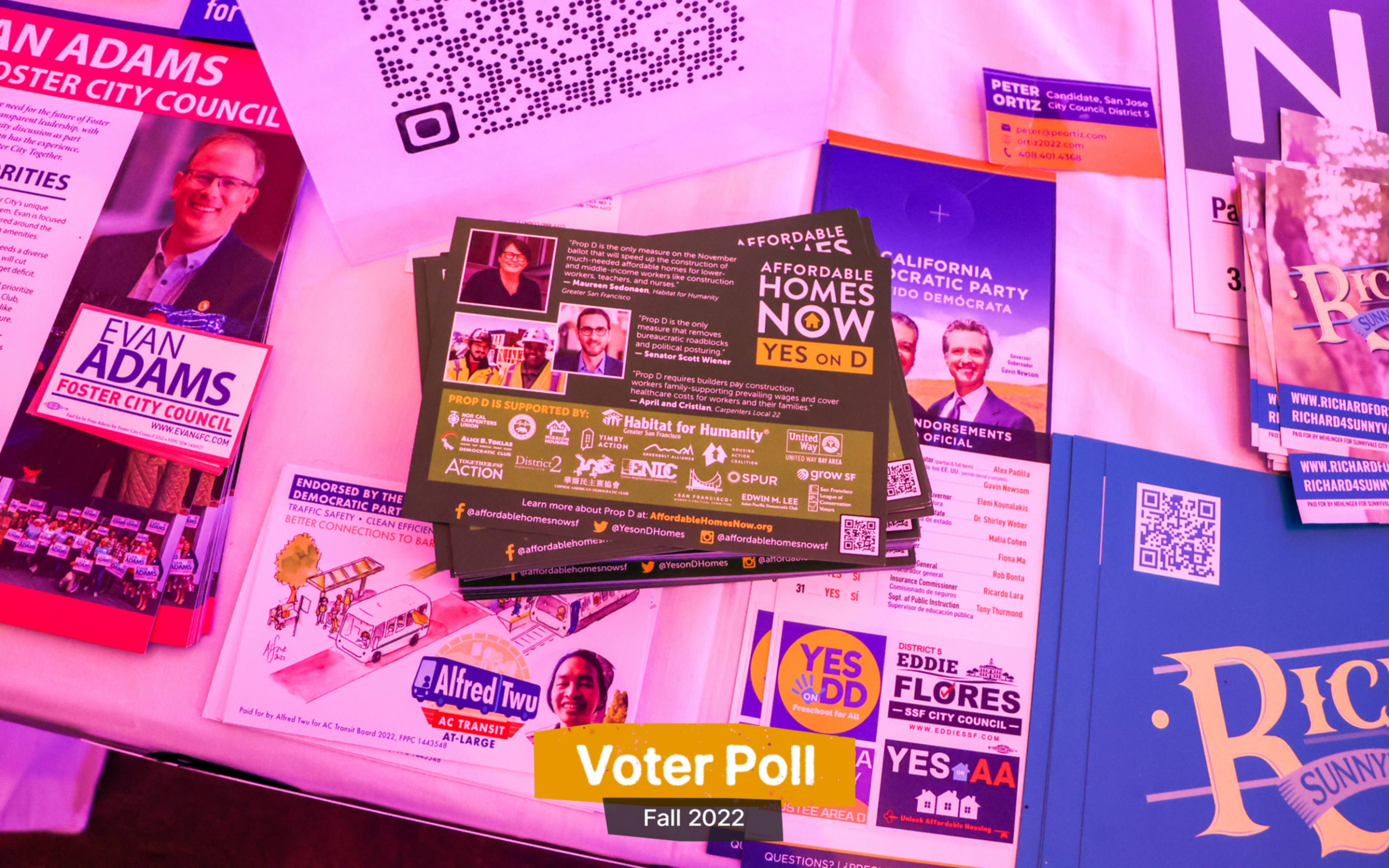The results are in, and more voters said they would most like to see any type of new housing in San Francisco, according to The Standard’s Fall 2022 Poll.
In a poll of registered voters, 41% said they support “any type of housing” over only market-rate, only affordable or no new housing at all. Thirty-two percent said they support “only affordable housing that will sell or rent at below market-rate prices to lower-income individuals.”
Among likely voters, the split was even more profound: 44% said they support all new types of housing, and just 29% said they only want to see new affordable housing.
Build housing of all types—both affordable and market-rate—is the main message of the YIMBY movement, which started in San Francisco and has since grown to a powerhouse with chapters in many different cities, a dedicated volunteer base and the ears of many local and statewide politicians.
The view supported by 29% of poll respondents—that the city should build only affordable or below market-rate housing—is more closely aligned with the city’s progressive political faction.
“It’s a sea change,” said state Sen. Scott Wiener, who has long advocated for more housing as the local and state levels. Wiener, who represents San Francisco and has been an outspoken YIMBY, spoke at this year’s YIMBY Prom alongside Mayor London Breed and state Rep. Buffy Wicks, who represents the East Bay.

Poll findings show residents who supported building housing of all types were more likely to work in the tech industry and to be millennials, white men who attended college, gay or bike riders.
“Everyone who would like to experience [San Francisco’s] greatness should be allowed to, which is why we need more housing at literally every income level,” one respondent wrote. “So many of SF’s problems boil down to a lack of housing, and we won’t make progress on any of them as long as NIMBY politics dominates the local discourse.”
This election, the YIMBY-progressive divide takes the form of Propositions D and E. The YIMBY-backed Prop. D would streamline production of certain housing projects that exceed affordability minimums.
Prop. E, which YIMBY groups have derided as a “poison pill” designed to tank Prop. D, is also described as a streamlining measure but adds further requirements related to unit size and labor.
YIMBYs also secured major wins in the state legislature this year, including AB 2011, a bill that could make it easier to build housing on commercial lots, and AB 2097, which removes parking requirements for certain housing developments near public transit.
